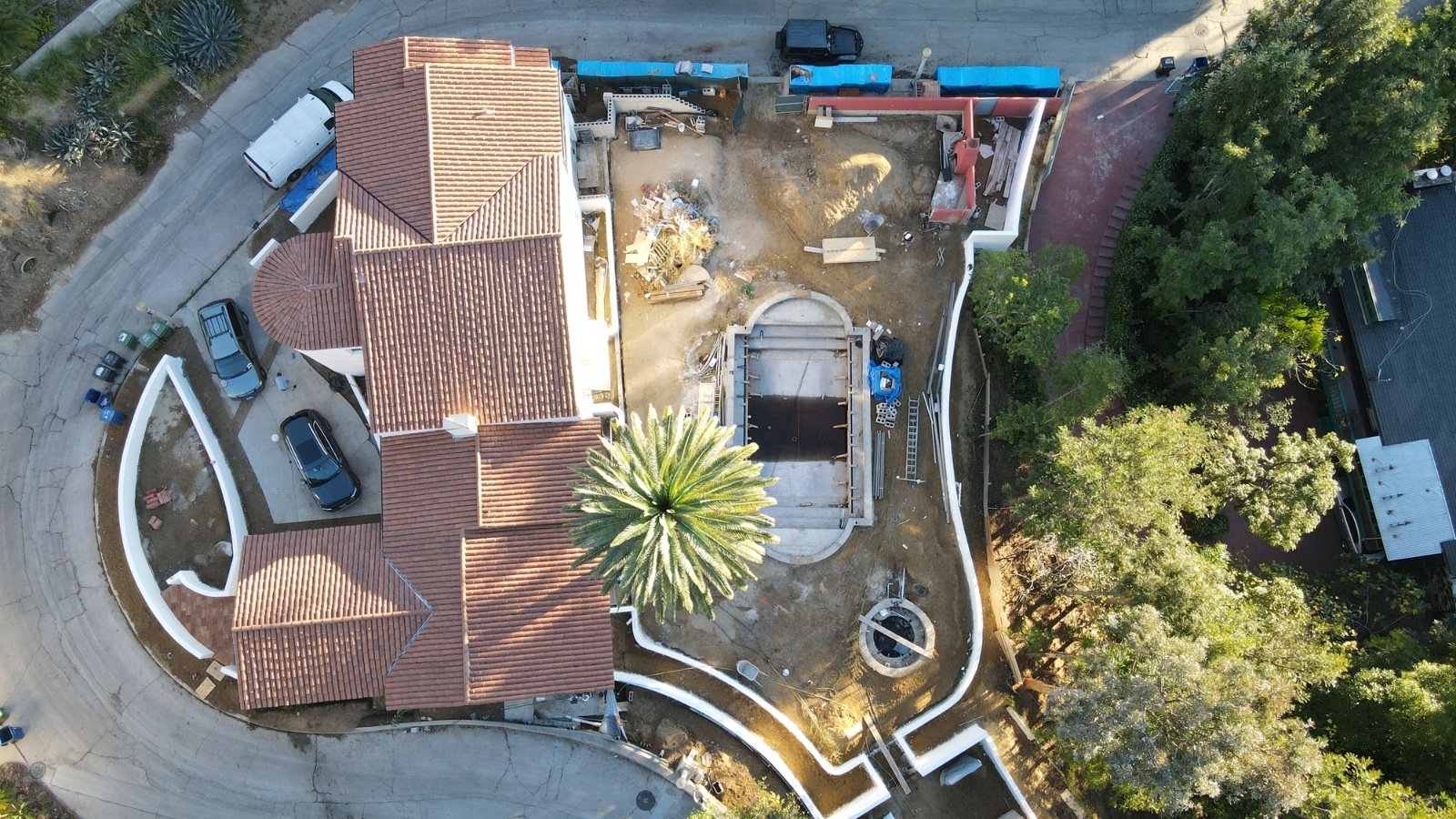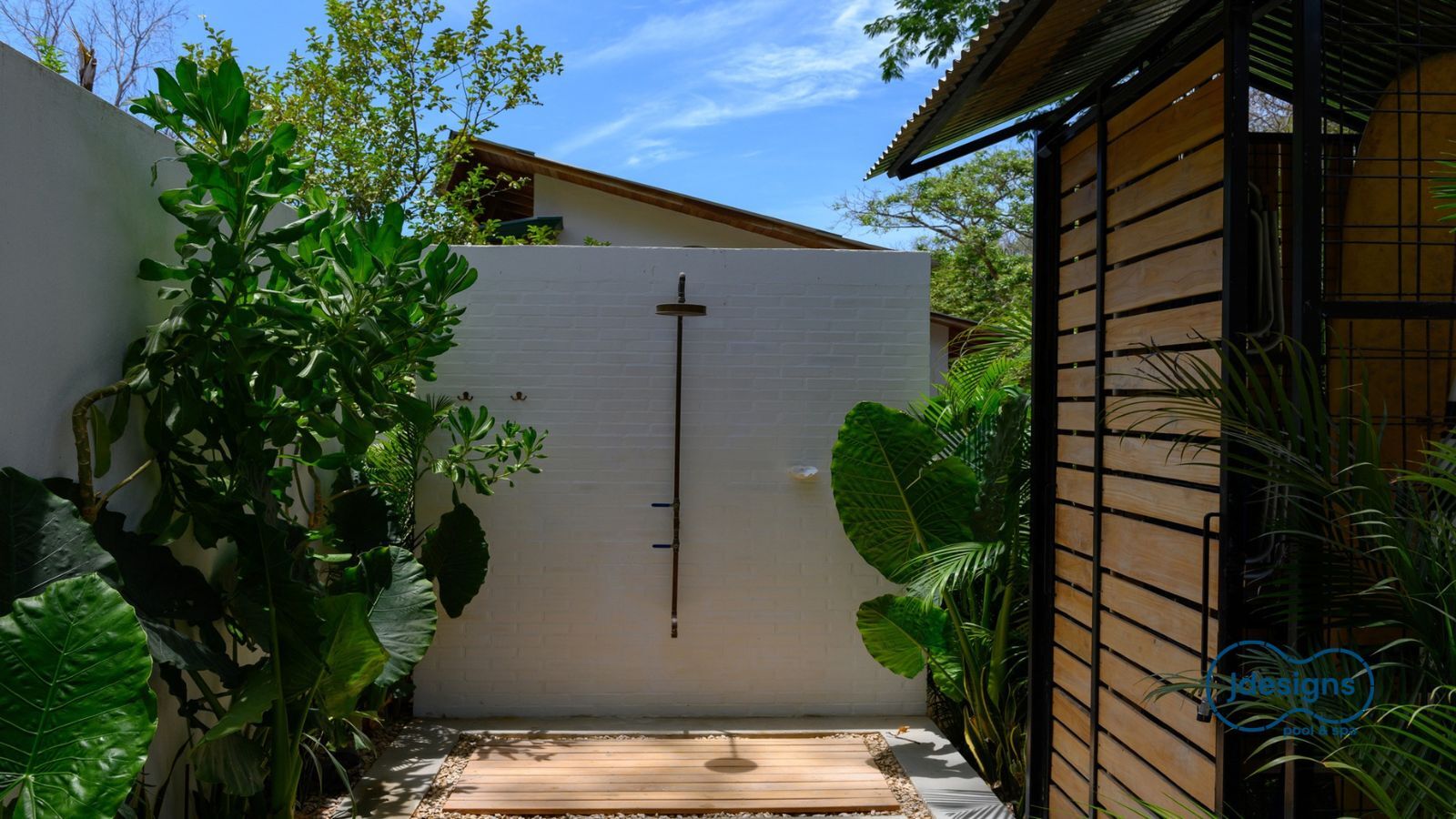Top Pool Builders in Los Angeles: Reviews, Ratings & Comparison
Are you worried about choosing the wrong pool builder, and ending up with a project that drags on for months, blows past your budget, or leaves you...
3 min read
JC Escudero : Updated on July 24, 2024

Timing is everything when creating your dream pool, especially during the crucial plastering and filling stages. To bring your pool to life, it’s essential to ensure these final touches are perfectly timed. With two decades of experience in pool construction, we at J Designs understand the importance of timing to ensure a flawless finish.
In this article, we will explore why timing is crucial in pool plastering and filling, the risks of poor timing, and how to strategically plan for a successful pool project.
The process of plastering and pool filling gives your pool its finished look and feel. However, diving into these steps prematurely—before the surrounding landscape and hardscape are complete—can lead to complications. The landscape and hardscape work can cause shifts in the soil and create debris, which can mar the pristine surface of a newly plastered pool. It is in your best interest to exercise patience and ensure that all surrounding work is finalized to protect the integrity of your pool's surface.
Moreover, plastering should coincide with when the pool can be filled and maintained without interruption from other construction activities. This prevents the new plaster from being exposed to elements that could compromise its curing process. Such foresight in planning enables a smoother transition to a fully operational pool, ensuring that the pool's beauty and structural integrity are preserved from the outset.
Construction projects are inherently messy, with dust, dirt, and debris often disrupting the process. When a pool is plastered before the landscape is completed, the risk of construction materials contaminating the water is significantly heightened. Debris can negatively impact the pool's appearance and cause damage to the filtration and pumping systems, resulting in expensive repairs and maintenance issues. In addition, using heavy machinery or tools for landscaping or hardscaping work increases the risk of accidentally damaging the pool surface.
Water damage is another critical risk factor. Without proper drainage systems, which are typically finalized during landscaping, rainwater or runoff water can overflow into the pool. This can introduce silt and contaminants, making achieving and maintaining the necessary chemical balance challenging and potentially resulting in long-term damage to the pool's surface.

The curing process of pool plaster is a delicate phase that requires consistent monitoring and maintenance. Freshly applied plaster needs time to harden and bond properly, a critical period during which the pool's chemistry must be carefully balanced. Rushing this process, or subjecting the new plaster to the harsh conditions of ongoing construction, can lead to various issues, including discoloration, cracking, and premature deterioration of the pool surface.
A meticulous and patient approach to the curing process ensures the longevity and aesthetic appeal of the pool plaster. This involves not only waiting for the optimal time to plaster but also allowing the pool to undergo its startup sequence without the interference of external construction activities. The benefits of such patience are a durable, high-quality finish and a pool that gleams with sophistication.
The allure of a swimming pool lies in its structural integrity and the aesthetic beauty it adds to your property. Plastering your pool prematurely can compromise both. The weight and vibration of ongoing construction can cause the ground to settle differently, potentially leading to cracks in the pool structure. The meticulous application of the plaster is also at risk, as the fine finish can easily be blemished by dirt, dust, and other construction by-products.

Preventing such damage requires a strategic approach to the construction timeline. Ensuring that the pool area is clear of potential hazards and that the plaster has fully cured before other projects commence is not just a recommendation—it's a necessity for safeguarding your investment. The attention to detail in these final stages will reflect your pool's enduring quality and pristine condition.
Strategic planning is the cornerstone of successfully integrating pool plastering with landscape completion. Coordination between the contractors is crucial to prevent construction overlap that could jeopardize the pool's finish. By scheduling the plastering and filling of the pool as the final steps in your backyard transformation, you can avoid the pitfalls of an out-of-sequence project timeline.

This coordinated effort protects the pool and allows a seamless transition to a fully realized outdoor living space. It ensures that every element, from the pool to the surrounding flora and hardscape, complements each other in design and function. By giving due consideration to the order of operations, your pool will serve as a refreshing escape and a testament to the thoughtful craftsmanship that went into its creation.
Ready to ensure a flawless finish for your pool project? Contact us today to discuss the optimal timing for plastering and filling your pool. For more valuable insights, read our guide on 6 Best Practices for Your Inground Pool Construction Journey and make informed decisions every step of the way.

Are you worried about choosing the wrong pool builder, and ending up with a project that drags on for months, blows past your budget, or leaves you...

Water has always been more than a way to get clean; it’s how people reset and reconnect with their surroundings. From Japan’s misogi to the Turkish ...

Building a luxury pool is a significant investment, one that should deliver both beauty and peace of mind. Yet, even the most impressive projects can...